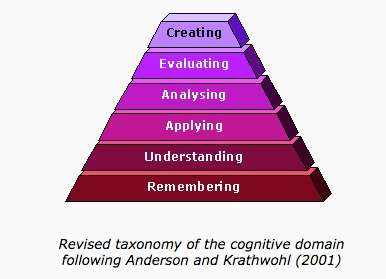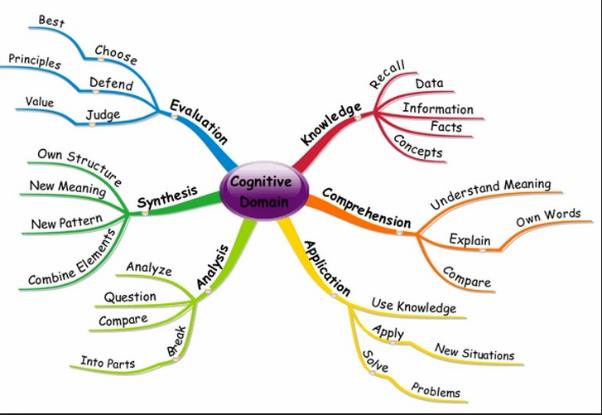Lesson 5 - Theories of Learning
7. Cognitivism
7.2. Cognitivist Learning Theory
The most widely used theories of cognitivism in education are based on Bloom’s taxonomies of learning objectives (Bloom et al., 1956), which are related to the development of different kinds of learning skills, or ways of learning. Bloom and his colleagues claimed that there are three important domains of learning:
- Cognitive (thinking)
- Affective (feeling)
- Psycho-motor (doing)
Cognitivism focuses on the ‘thinking’ domain. In more recent years, Anderson and Krathwohl (2000) have slightly modified Bloom et al.’s original taxonomy, adding ‘creating’ new knowledge:

Bloom et al. also argued that there is a hierarchy of learning, meaning that learners need to progress through each of the levels, from remembering through to evaluating/creating. As psychologists delve deeper into each of these cognitive activities to understand the underlying mental processes, it becomes an increasingly reductionist exercise (see Figure 7 below).
